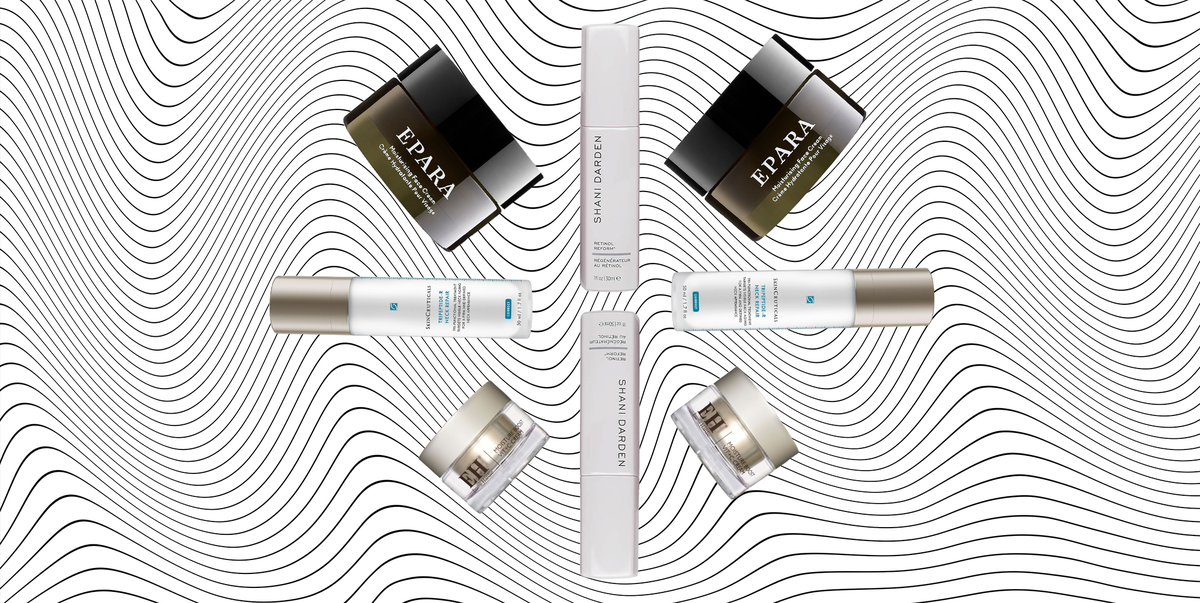[ad_1]
Yes, it’s almost 2022, but unfortunately, time machines don’t exist—YET. So, if you’re trying to turn back the clock to get rid of your wrinkles, you’re out of luck, sorry. Don’t stress, though, because (1) wrinkles are a completely natural part of life, and (2) if you feel like you want to reduce their appearance, there are other things you can do, like investing in a wrinkle cream that’ll help you get smooth bb angel skin. A huge plus: Today’s wrinkle creams fade dark spots, diminish fine lines, and improve your skin’s texture, but which one is right for you?? Thankfully, we’ve got you covered, thanks to a trusted derm. Keep reading to find the 15 best wrinkle creams that’ll have you looking as good as J Lo.
Meet the expert:
- Dr. Mamina Turegano: Turegano is a triple board-certified dermatologist, internist, dermatopathologist, and not to mention, my favorite “TikTok Derm.” In addition to practicing general dermatology, Turegano serves as the dermatopathologist at Old Metairie Dermatology in New Orleans. She has a special interest in anti-aging, as well as holistic and integrative medicine.
Is there a wrinkle cream that really works?
As with most things in the oh-so confusing beauty and skincare world, there’s not a totally straightforward answer to this. As to whether wrinkle creams really work, “it depends what you mean by ‘wrinkle cream,'” says Turegano. “As dermatologists, we don’t recommend or even use the phrase ‘wrinkle cream,’ instead, we recommend products with certain ingredients that can combat wrinkles and other signs of aging.” The top ingredients to look out for? Sunscreen, retinoids, and antioxidants. Turegano breaks ’em down for you:
Sunscreen
“The number one product that we consider to be anti-aging is sunscreen,” she says. In fact, she claims that if you’re not using sunscreen, it’s “pointless” to even use other products—YEP, it’s that important. UV rays are a huge contributor to accelerated collagen breakdown, which leads to wrinkle formation and sagging skin. Not only that, but these rays also cause increased hyperpigmentation and uneven skin tone, Turegano explains.
Retinoids
When it comes to retinoids, you can choose between a prescription, like Tretinoin (AKA Retin-A), or an over-the-counter retinoid, such as retinol. Turegano explains that these ingredients work by going deep into the collagen and assisting with “collagen remodeling,” which helps tighten the skin. Not only that, but retinoids also increase cell turnover, which helps even out the skin. Just be sure to avoid all retinoids during pregnancy, as they are not recommended, says Turegano.
Antioxidants
Quick refresh—antioxidants are chemical compounds that protect the skin from free radicals (i.e., cells that can cause aging or illness). Antioxidants work by finding unstable or oxidizing molecules—which have the potential to cause damage to the surface of the skin or deeper in the collagen—and neutralizing them, she explains. Specifically, Turegano says that Vitamin C is a great antioxidant to look for in anti-aging creams.
But the list doesn’t stop there: In fact, Turegano says that there is a whole host of other anti-aging ingredients that dermatologists look for and recommend. These include peptides, growth factors, glycosaminoglycans, stem cells, exfoliating agents, and others.
How do I choose the best wrinkle cream for me?
First, let’s get one thing straight: Everyone, no matter who you are or your age, should be using SPF year-round, especially considering it is the absolute BEST way to prevent premature wrinkles (not to mention skin cancer). Kk, now that that’s settled, if you’re ready to dip your toes in the other products with some of the key ingredients above, you should consider your age, Turegano explains.
In your 20s, “you can consider adding a retinoid and a Vitamin C,” she says. Start low and slow when you incorporate these products into your skincare routine. “This means starting with a lower potency strength, and using it every other day to begin with.” If you don’t slowly introduce certain products, especially retinoids, too much can cause your skin irritation. In your 30s, exfoliating should become your new BFF—but not as in mechanical exfoliators (i.e., physical scrubs and brushes). Instead, opt for a chemical exfoliant such as AHAs (glycolic acid, lactic acid), BHAs (salicylic acid), and PHAs (gluconolactone, galactose, lactobionic acid). These can be found in face toners, face washes, or even face moisturizers. In your 40s to 50s, fine lines, dark spots, uneven skin texture, and a loss of firmness become more prevalent. Turegano recommends a really hydrating moisturizer as the go-to. Find moisturizers or serums rich in antioxidants and hyaluronic acids for the morning, and stick to products with retinol and peptides at night.
Other than your age, you should consider your skin type. “Oily skin tends to tolerate higher strength of retinoids. However, if you’re a beginner, I still recommend starting low and slow,” Turegano says. For SPF, choose a sunscreen for oily skin that is lightweight. If you have dry skin, heavier lotions and creams will do the trick.
The best wrinkle creams of 2022:
Kk, I know that was a toooon of info. So before I lose you to an information-overload-headache (sry), get hyped because here are 15 of the best anti-aging creams on the market.
[ad_2]
Source link
